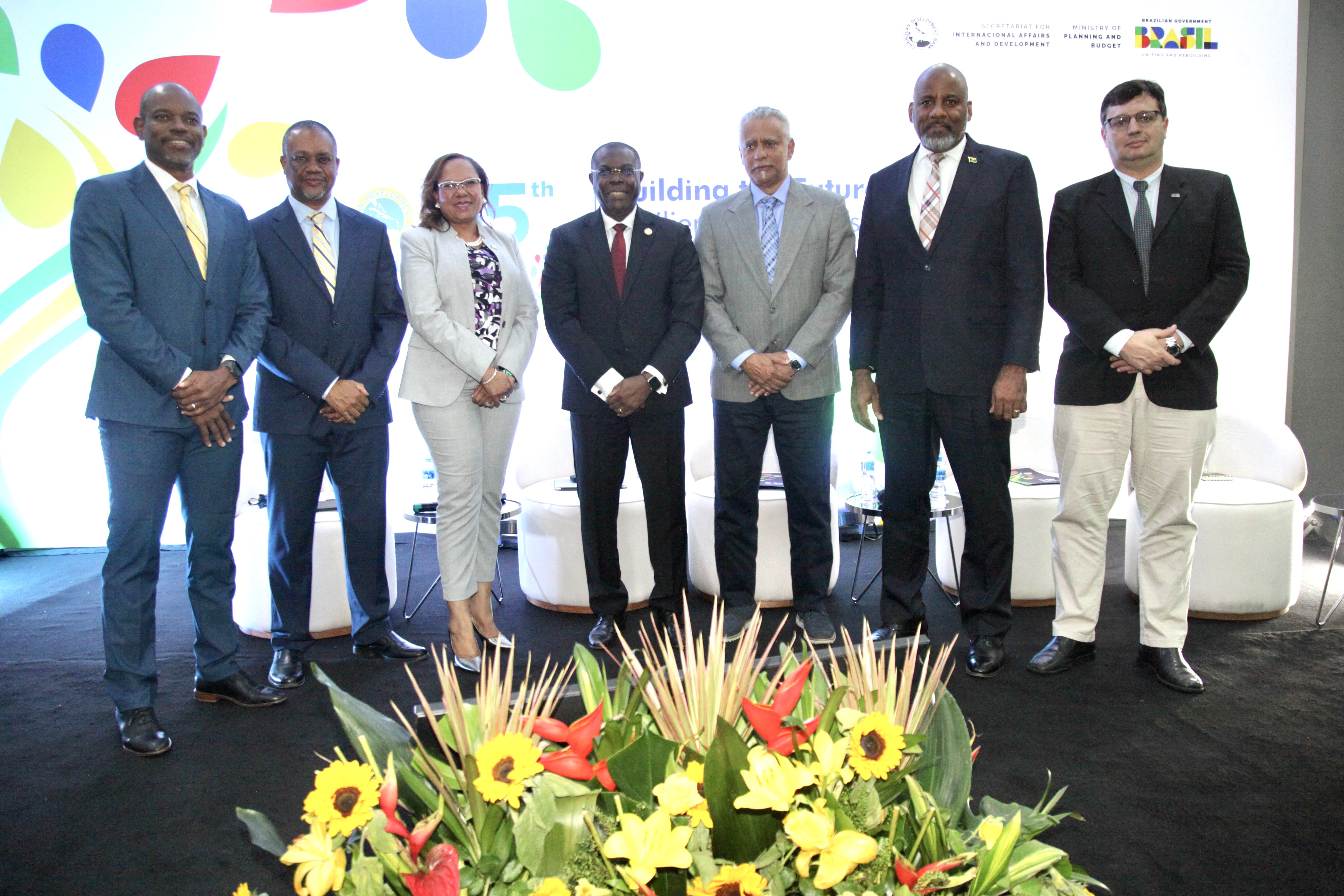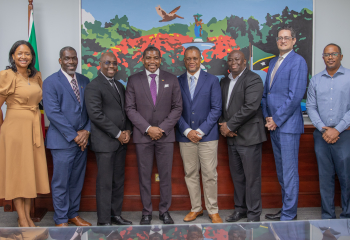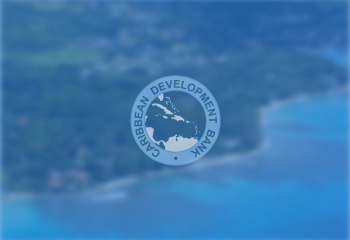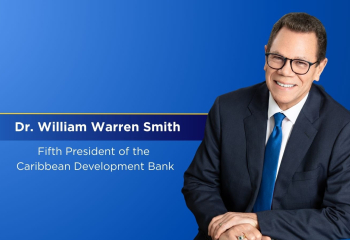Procurement Delays, Oversight Gaps, and Weak Capacity Undermining Caribbean Development Projects – CDB Study Reveals

Although there are areas of good practice and emerging strengths, a new baseline assessment commissioned by the Caribbean Development Bank (CDB) has revealed that persistent procurement delays, institutional capacity constraints, procedural inefficiencies, and oversight issues remain key factors hampering the implementation of development projects in the region.
While the study, which reviewed 35 CDB projects across 10 Caribbean countries, yielded some encouraging data it also pointed to fragmented stakeholder coordination, disjointed communication, limited CDB engagement and insufficient on-the-ground readiness as factors negatively affecting project outcomes.
The findings were central to a high-level seminar recently convened by the Bank, entitled “Accelerating Project Implementation to Reduce Poverty,” which brought together Caribbean policymakers, private sector leaders, and global development experts. The discussion focused on unlocking institutional and systemic bottlenecks to expedite project delivery and maximize development impact.
Speaking at the event, CDB President Daniel Best underscored the human cost of inaction: “Each day that a project isn't delivered, people suffer,” he said. “These are actual lives that aren't being transformed because of project delays. Delays in procurement, weak project coordination, and capacity constraints are slowing us down. And our shared development agenda is being held back not by lack of vision, but by implementation.”
As part of the deep dive into the issue, Cavon C. J. White, Portfolio Manager at CDB, highlighted the urgency of addressing persistent internal weaknesses. “While many countries have qualified personnel, and there is in some countries a growing focus on project readiness, persistent capacity gaps, especially in project staffing and monitoring and evaluation systems, are stalling execution,” he noted. “Financial oversight and risk management are not fully integrated into planning, and fragmented communication weakens problem-solving."
These concerns were echoed by Cecil Harris, Project Manager at the Ministry of Finance, Economic Planning and Information Technology in Saint Vincent and the Grenadines, who offered a candid look at the on-the-ground constraints his team faces. "We don’t have enough suitable design firms or qualified contractors,” he said. “When bids go out, it’s the same overworked firms every time. Counterpart funding delays land acquisition and house relocation, which then stalls construction. Add one asphalt plant, material shortages, and budget cycles out of sync with project timelines, and implementation becomes a cascade of constraints, not just one or two bottlenecks."
Dr. Wayne Henry, Chairman and Director General of the Planning Institute of Jamaica, cautioned against placing all blame on implementation, noting that design quality and upstream planning also emerged as critical factors. “Project implementation delays are not just due to execution weaknesses,” he explained. “You can have challenges with upstream planning. Many government ministries don’t have the capacity to do project conceptualization and design in a way that adequately translates policy into activities that meet development goals."
For Dr. Marcelo Morandi, Head of International Relations at the Brazilian Agricultural Research Corporation, project success hinges on practicality and partnership. “Projects need to be designed with specific and clear goals. Ambition is important, but it cannot be the main element if it’s not achievable. Beneficiary institutions must take part in the design. Especially when we’re talking about capacity building and technology transfer, this is essential for good results and effective implementation,” he explained.
The need for a result-driven culture was also emphasized by Dr. Stacy Richards-Kennedy, Regional Manager for the Development Bank of Latin America and the Caribbean. “Capacity means many things—technical competence, training, numerical staffing, digital infrastructure, financial support, and mindset,” she said. “You can have someone brilliant at project execution, but if they’re one of two people managing a $50 million project, it won’t work. We need leadership and a culture focused on results, not just planning. Execution must be supported across every layer of capacity.”
Dr. Alexander Budzier, Chief Executive Officer at Oxford Global Projects, urged stakeholders not to accept limitations as fixed. “I have yet to meet a single country anywhere in the world that says they have enough capacity and capability,” he argued. “And that’s the issue—logistics, fragmentation, small domestic suppliers, fiscal constraints—yes. But we’re also constraining ourselves by not being bold enough to reshape the environment these projects are delivered in."
While acknowledging the challenges, CDB’s Acting Director of Projects, L. O’Reilly Lewis, underscored the Bank’s commitment to tackling the issue. “Our shared goal is to catalyse impactful development across the Caribbean,” he said. “Through dialogue, data-driven insights, and bold reforms, we believe that constraints on project delivery can and will be overcome.”
CDB’s seminar on “Accelerating Project Implementation to Reduce Poverty,” was one of the knowledge-sharing events at the Bank’s 55th Annual Meeting held from June 9 – 12 in Brasília, Brazil. The meeting’s agenda focused on strengthening regional institutions in the Bank’s Borrowing Member Countries to promote sustainable development, economic growth, and greater inclusion.


